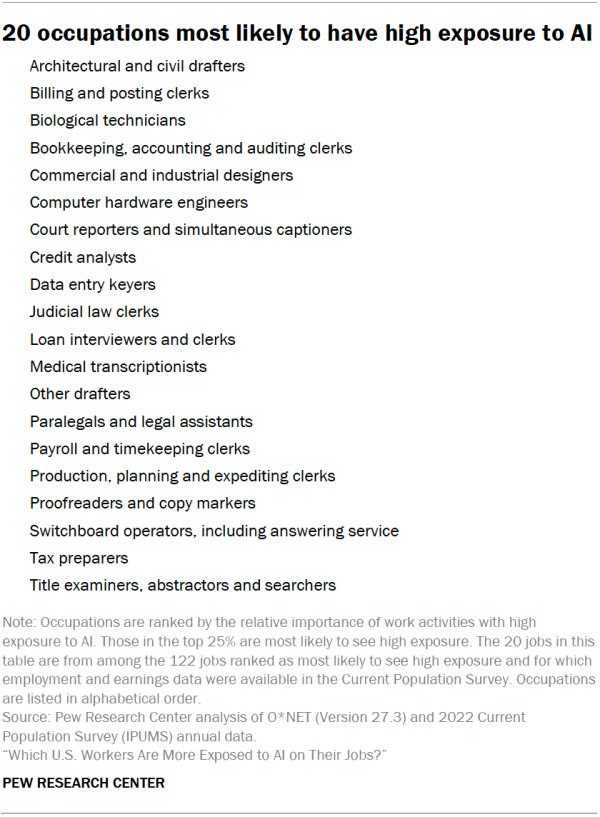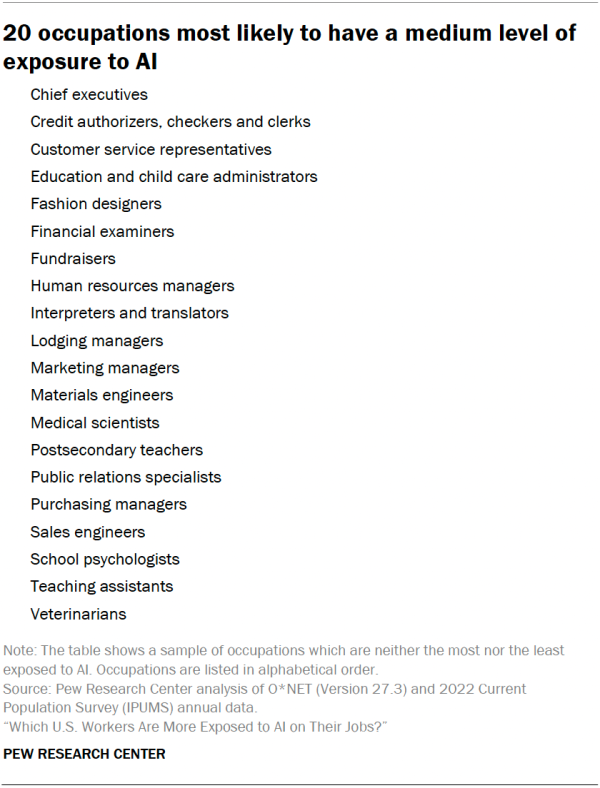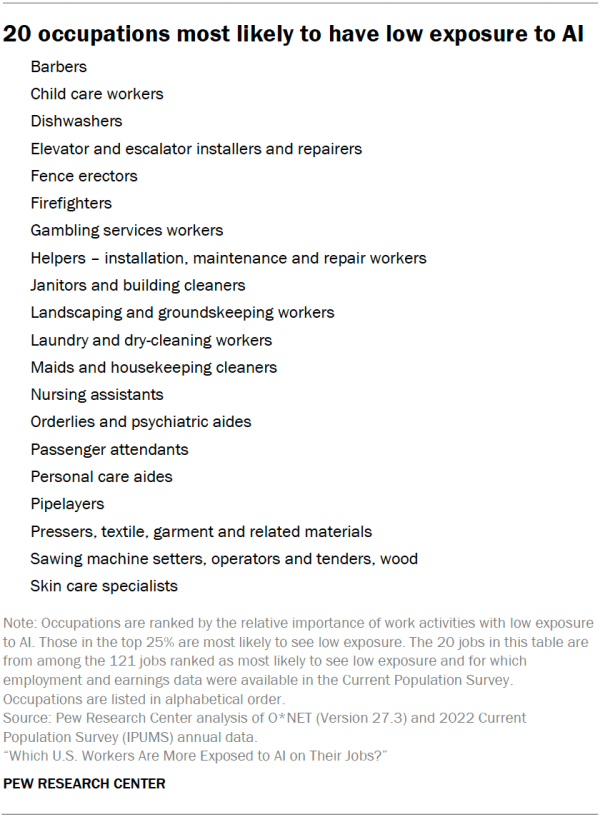What jobs, industries and skill sets is artificial intelligence (AI) mostly likely to affect? That’s still up in the air, but a new study indicates areas that require analytical skills are at the highest risk of “AI exposure,” while those that require more technical skills face lower exposure.

That’s the conclusion of a new Pew Research Center study of work and AI that, in part, mapped out key work skills in 873 occupations, using federal data. Analytical skills, such as science, math and programming, are more important in jobs that have high exposure to AI, such as robotics engineering. Meanwhile, mechanical skills, such as repairing and installation, are more important in jobs in which low AI exposure skills are more important. (See list at bottom of this article.)
The study continues: “For example, AI could replace, at least to a degree, the tasks ‘getting information’ and ‘analyzing data or information,’ or it could help with ‘working with computers.’ These are also among the key tasks for judicial law clerks and web developers, and they are more exposed to AI than other workers. However, AI alone cannot ‘assist and care for others’ or ‘perform general physical activities.’ Thus, nannies – for whom these are essential activities – are less exposed to AI.”
The study notes that work-related tasks vary in their exposure to AI. Some activities, such as repairing equipment, may have low exposure to AI, while others may have a medium or a high degree of exposure. Also, activities with different levels of exposure may be equally important within many jobs.
Overall, college-educated and higher-paid workers are more exposed to AI. But those in the most exposed industries are more likely to say AI will help more than hurt them personally.
In 2022, 19% of American workers were in jobs that are the most exposed to AI, in which the most important activities may be either replaced or assisted by AI; 23% of workers have jobs that are the least exposed to AI.
While white-collar jobs tend to be the ones most exposed to AI because they typically use technology the most, AI also could potentially affect jobs that rely more on mechanical skills. Researchers conducting the study note that their analysis doesn’t consider the role of AI-enabled machines or robots that may perform mechanical or physical tasks.
“Recent evidence suggests that industrial robots may reduce both employment and wages. Moreover, jobs held by low-wage workers, those without a high school diploma, and younger men are more exposed to the effects of industrial robots,” it says.
While the advent of AI has many worried that it will eventually change or eliminate jobs for humans, the report notes that is possible, but it also may create new types of jobs for more skilled workers, “much as the internet age generated new classes of jobs such as web developers,” it says. Another way AI-related developments might increase employment levels, the report adds, is by giving a boost to the economy by elevating productivity and creating more jobs overall.




